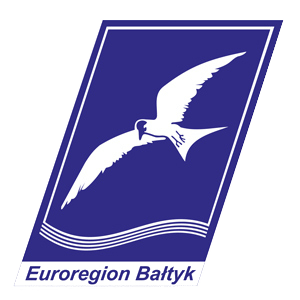Informacje z Euroregionu Bałtyk
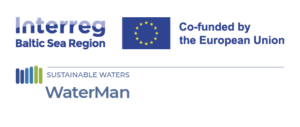
WaterMantl-ne News Projects WaterMan English pll_65574a188e516 WaterMan
Dialogue Forum and meeting of WaterMan project partners in Rønne
On November 7-9, 2023, an event was held as part of the WaterMan project in Denmark. The event was divided into two parts. One was for project partners only, while the other was open to others interested in the project topic or those who wanted to share their good practices.
7th of November
The first day began with a welcome to the participants by the project leader from the Kalmar Region and the host from Bornholm's Water and Bornholm's Wastewater.
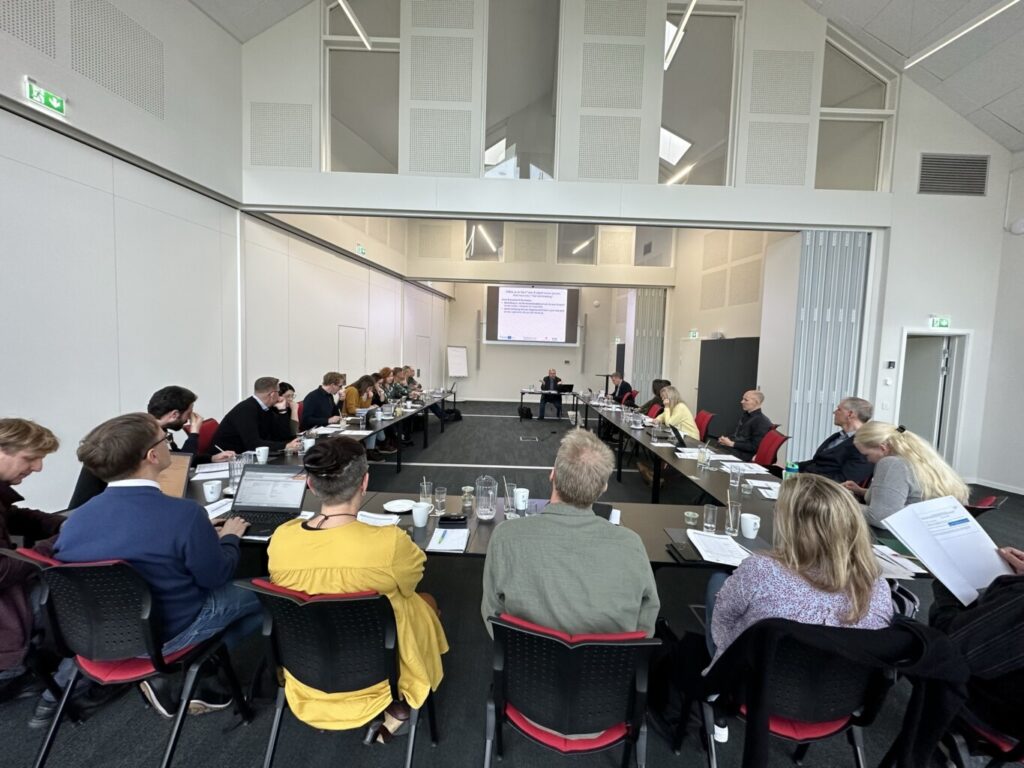
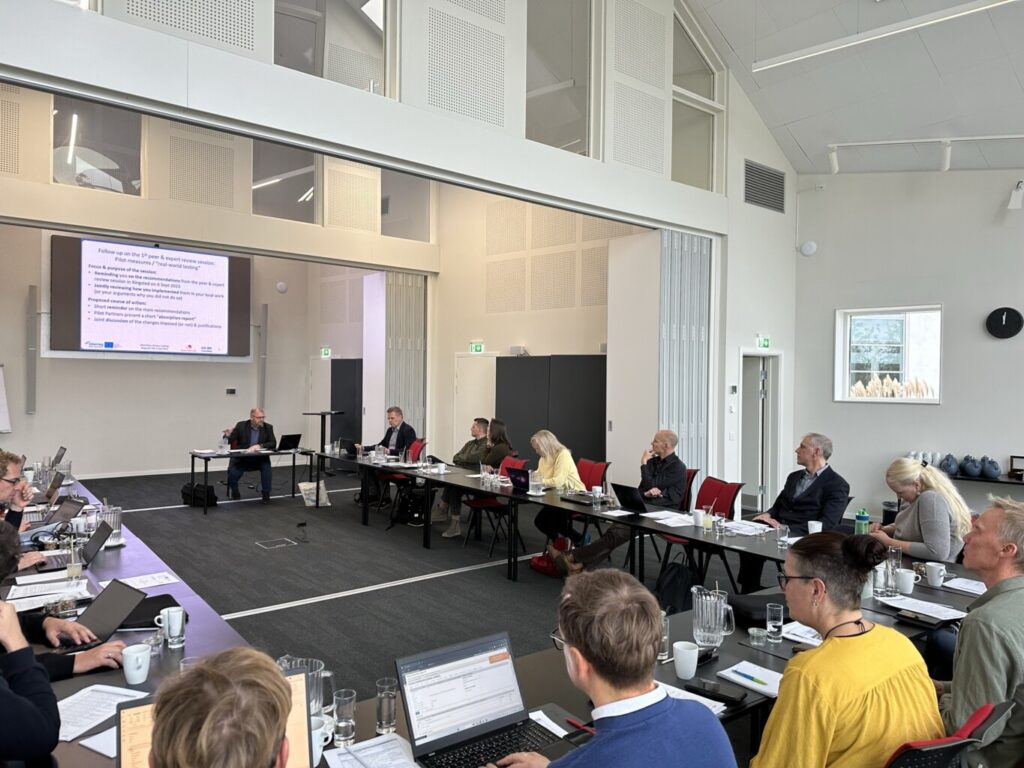
Activities concerning the pilots were discussed after welcoming participants and more specifically the partners responded to the questions and comments from the session discussed in Kalundborg. Each partner presented their situation and addressed what from the previous comments is possible and what will not be done after analysis. The main question was whether it is possible to use water of a lower class than for the pilots. An example was the use of water for watering urban greenery, or cooling industrial machinery. The most important factor is the cost of water, e.g. deep water, which is much cheaper than purified water.
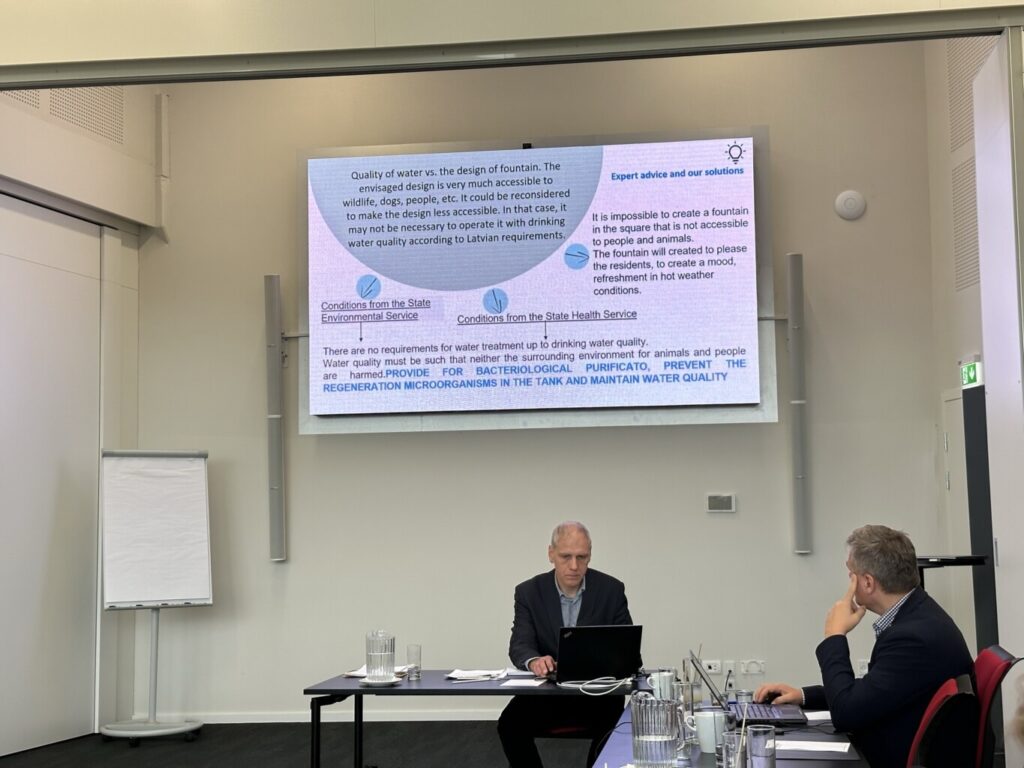
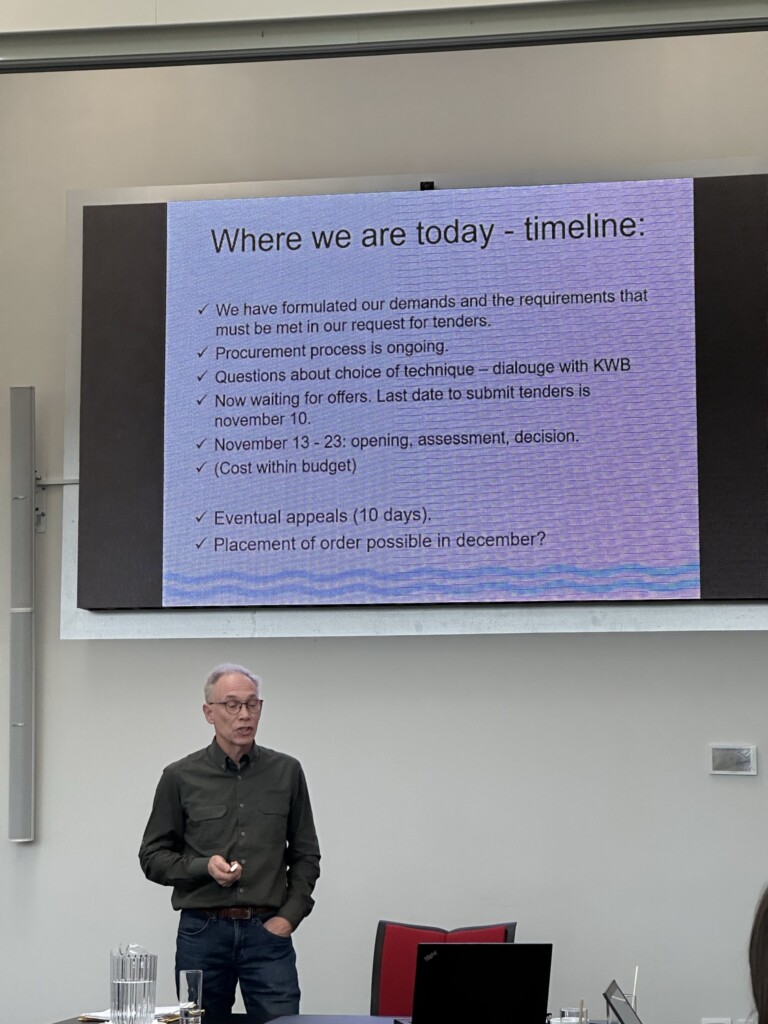
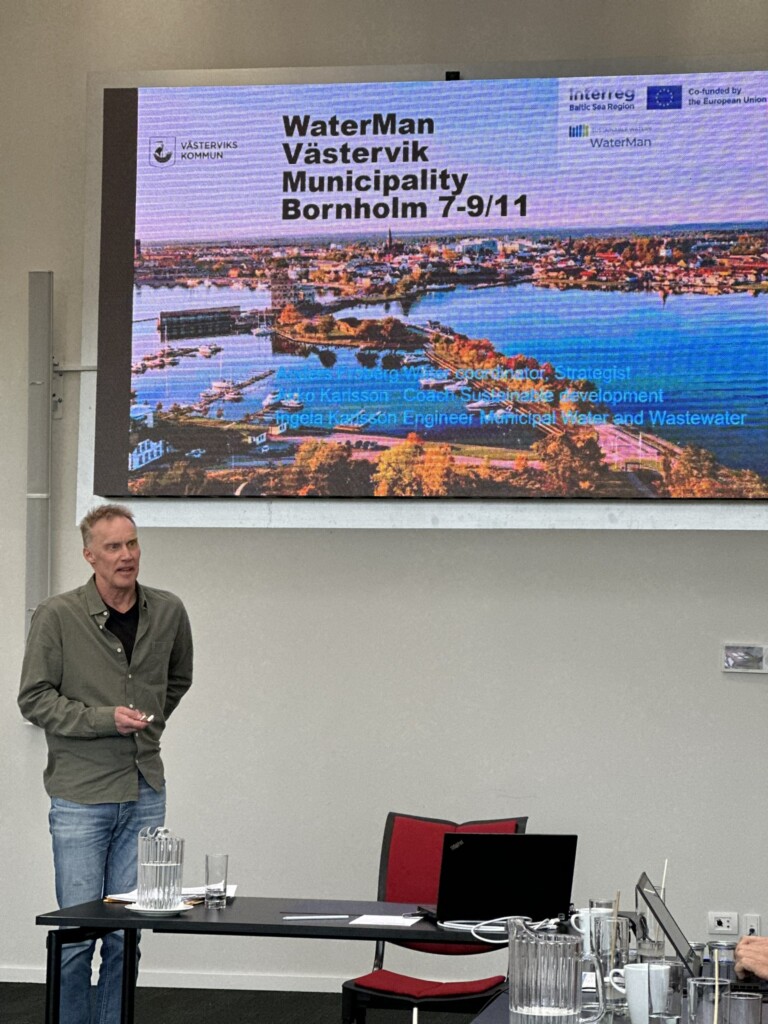
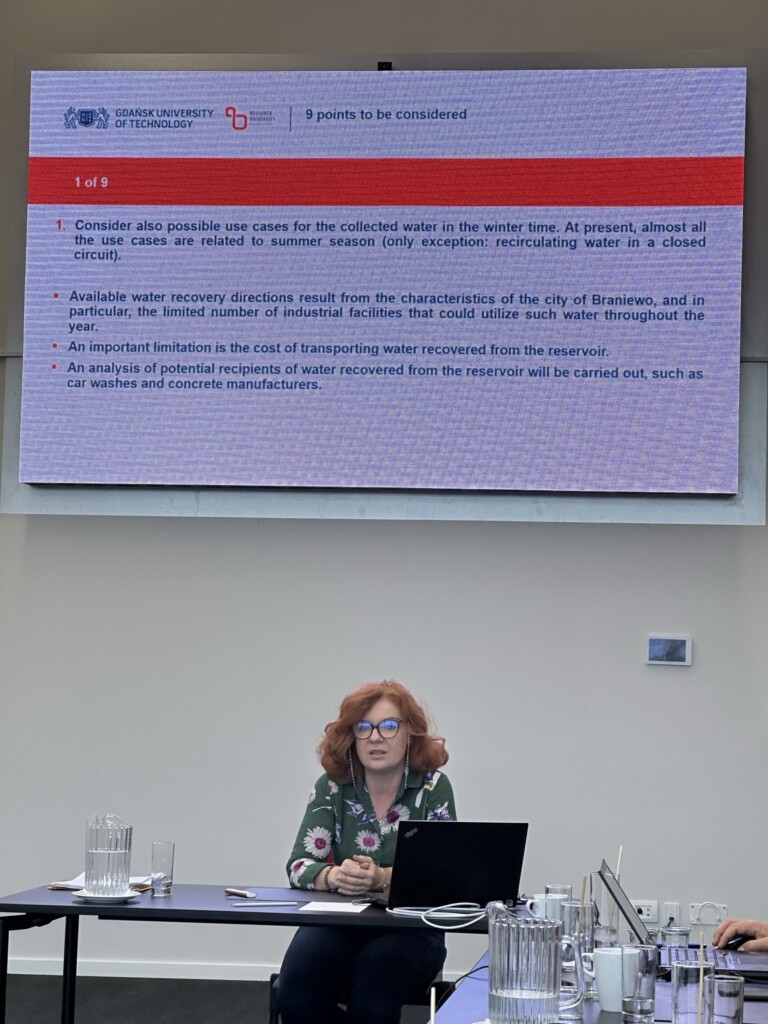
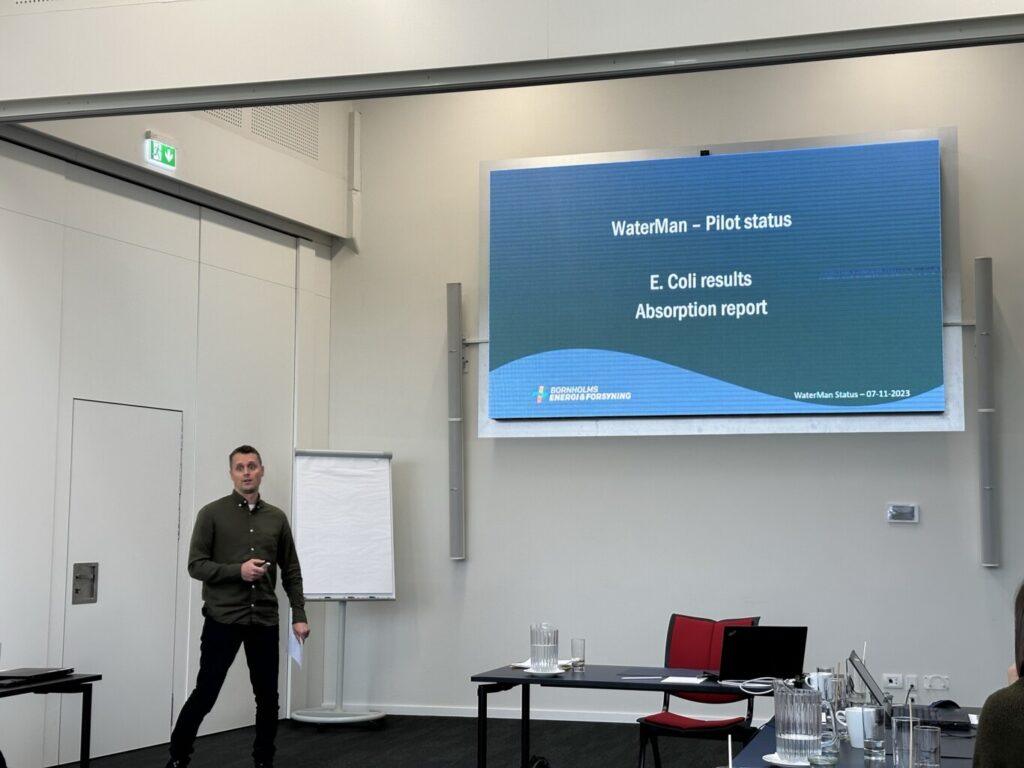
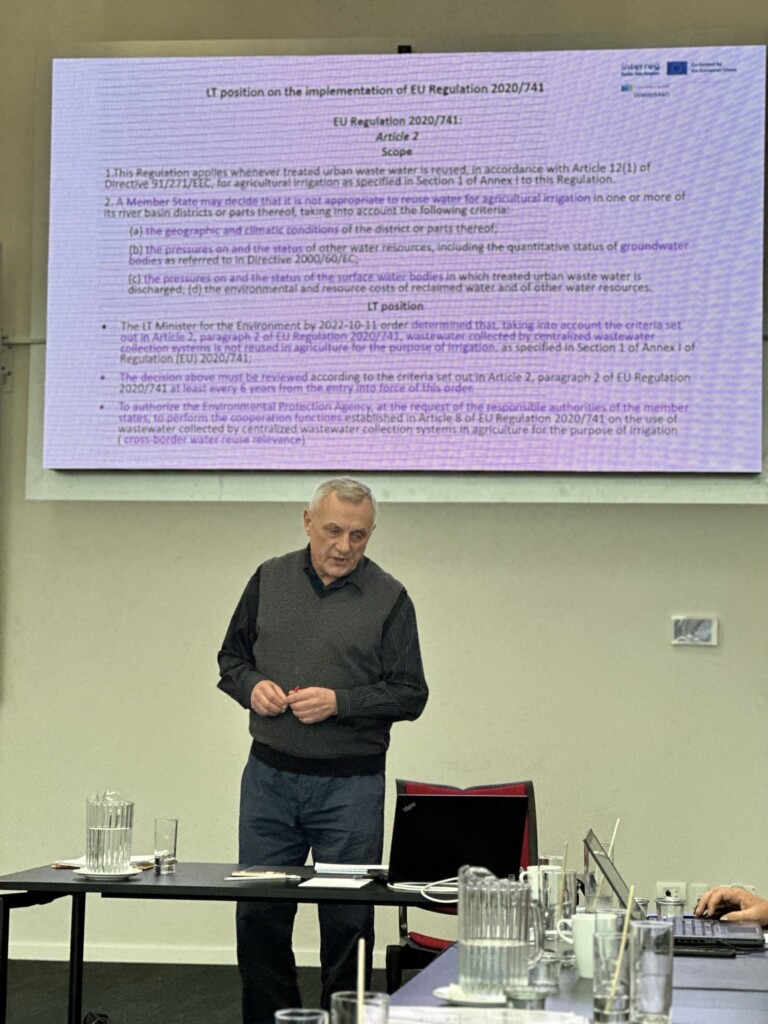
The second part of the day was devoted to a study visit to three sites selected by the Danish Partner. Among others visited were:
- Sewage treatment plant in Svaneke,
- A farm in Svaneke,
- An exhibition in Ronne on the island of Bornholm as an "Energy Self-Sufficient Island."
The sewage treatment plant in Svaneke is also the site of a pilot run by a partner from Denmark. Participants were able to see a prototype of the pilot, which in a few months will stand in full-scale execution a few meters away. The pilot is testing various possibilities for filtering water through selected types of sand. A nature-based (low-tech) method was chosen to test the possibility of filtration of water from locally available resources.
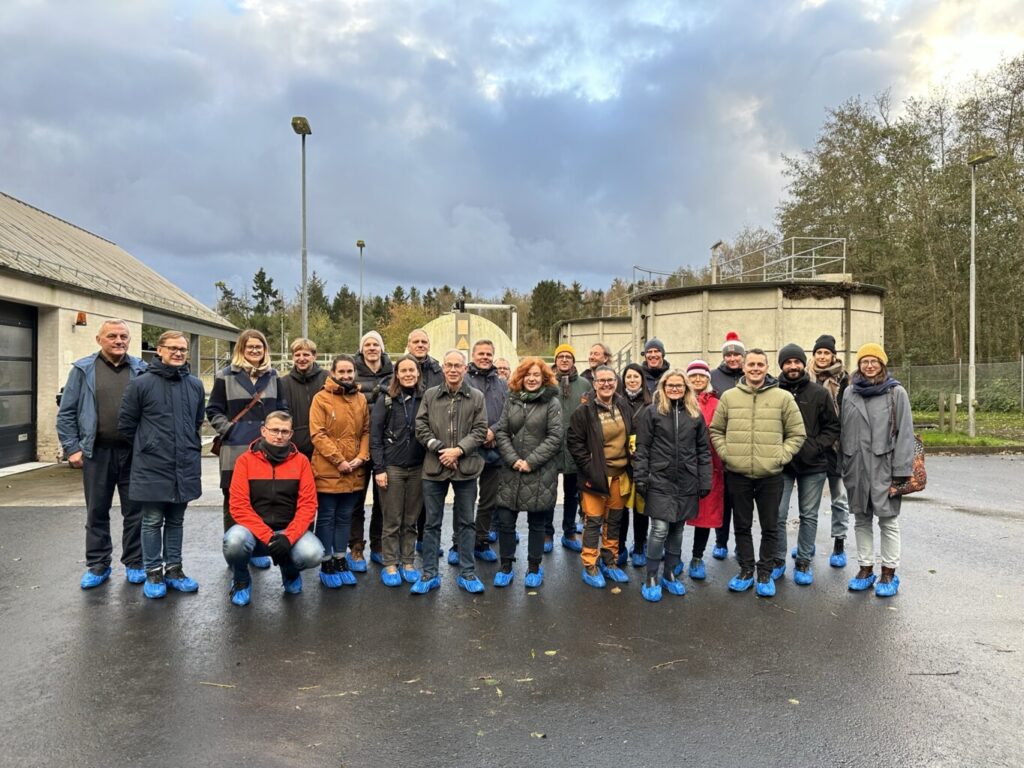
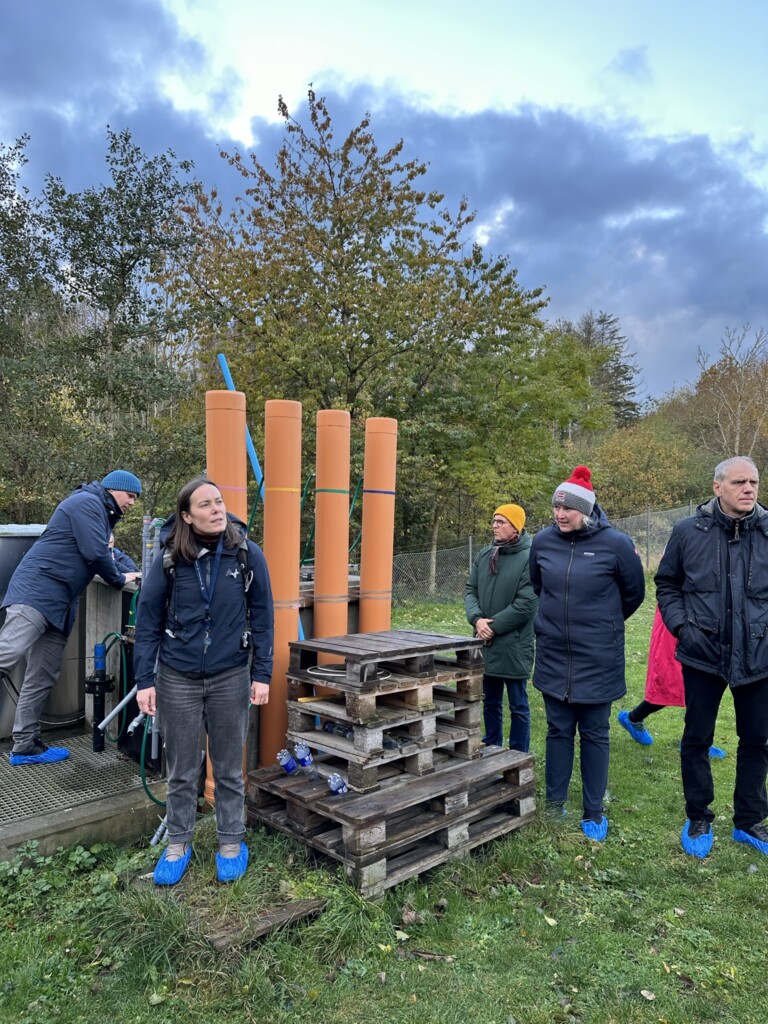
A farm in Svaneke that uses water from a wastewater treatment plant and from the sea to irrigate crops. It is one of the few farms that has received such approval to water crops with these types of water. It is interesting to note that the farm has high demand and its crops have bio status.
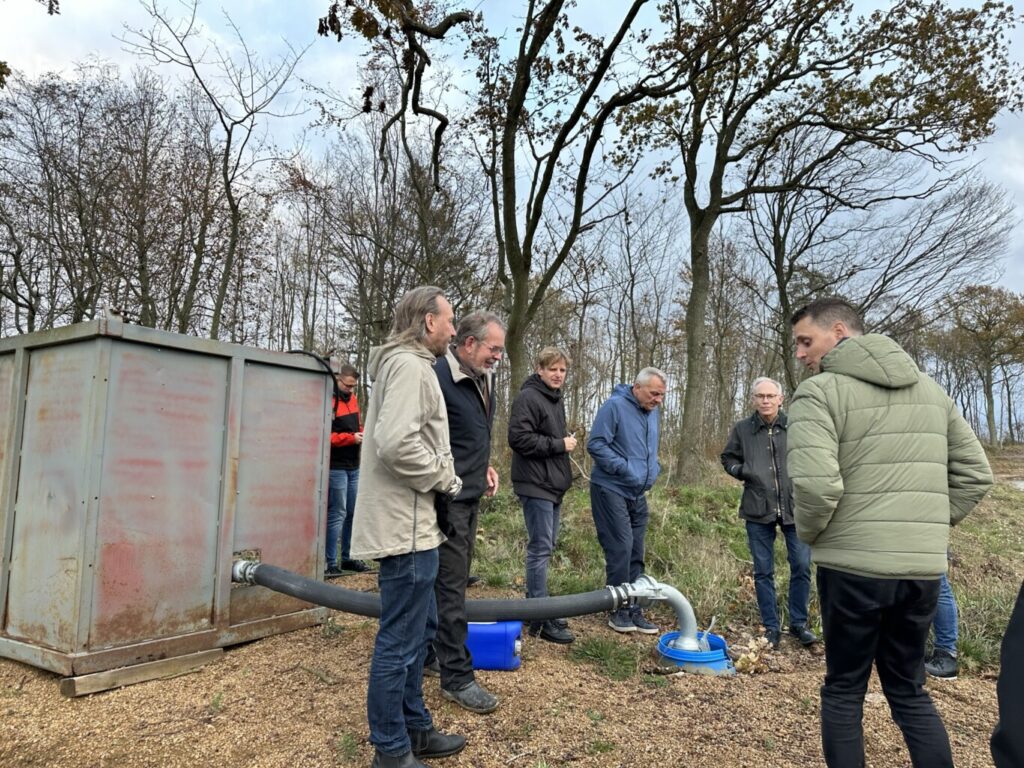
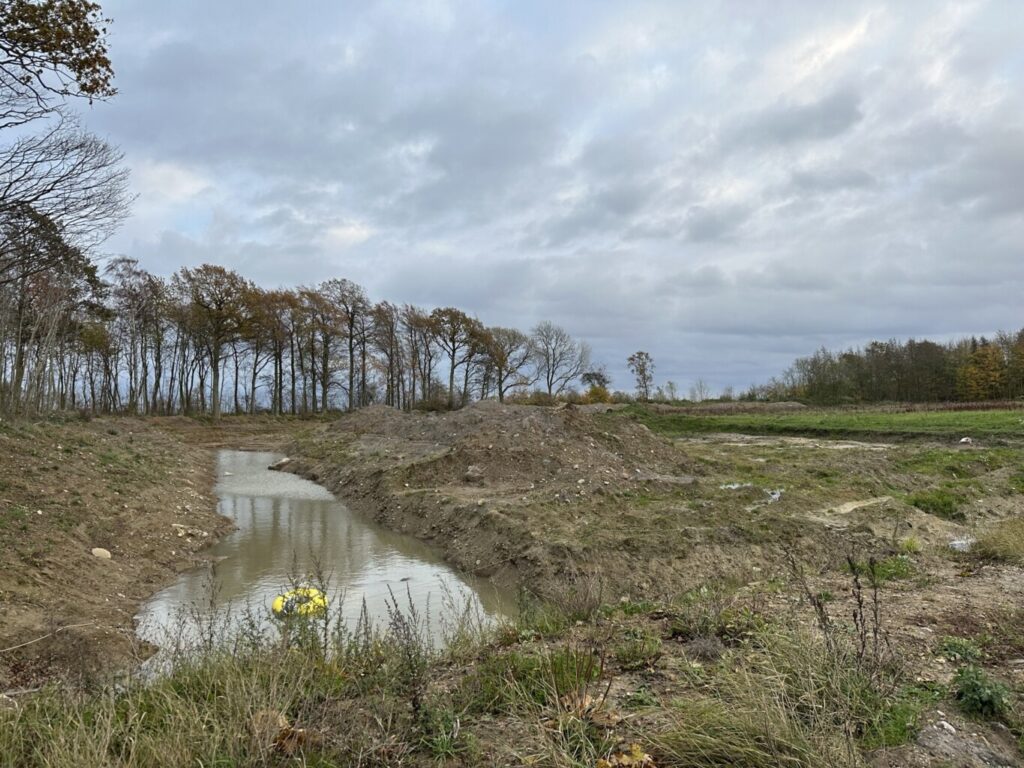
An exhibition in Ronne on the island of Bornholm as an "Energy Island Bornholm." By 2030, the island of Bornholm will achieve the status of an island that will be self-sufficient in energy, and in turn, will be able to resell the excess energy produced from renewable sources. The peculiarities of Bornholm make it possible to test various solutions that can later be translated to the rest of the country. The exhibition itself presents plans and assumptions on how the island will look after the changes.
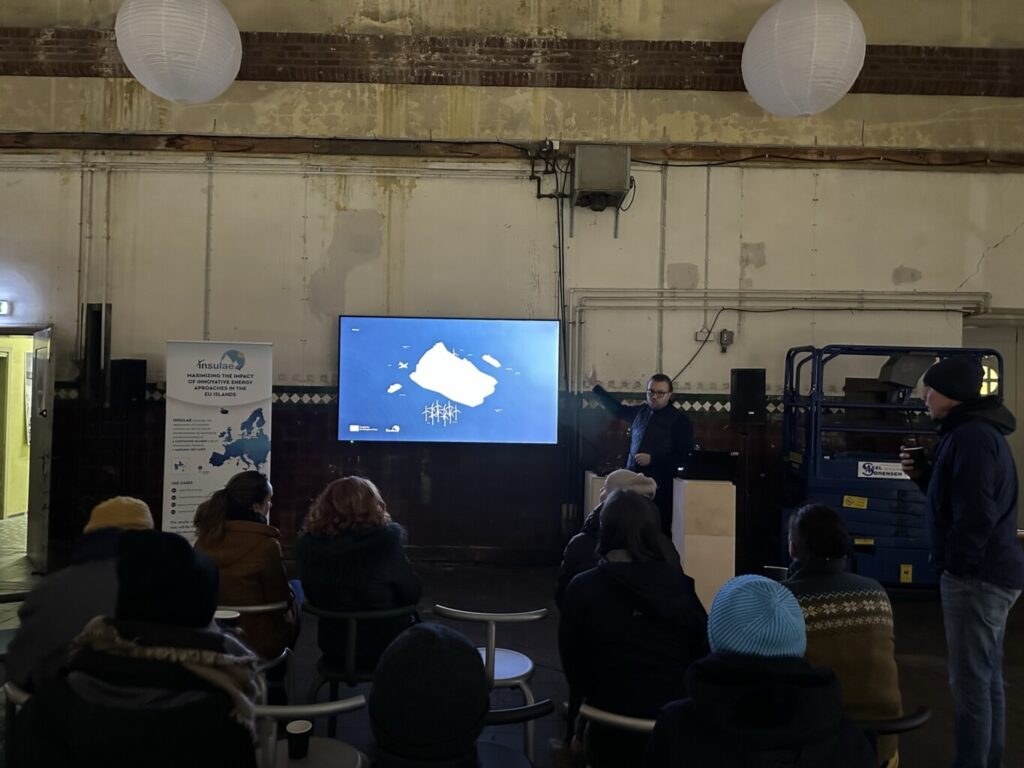
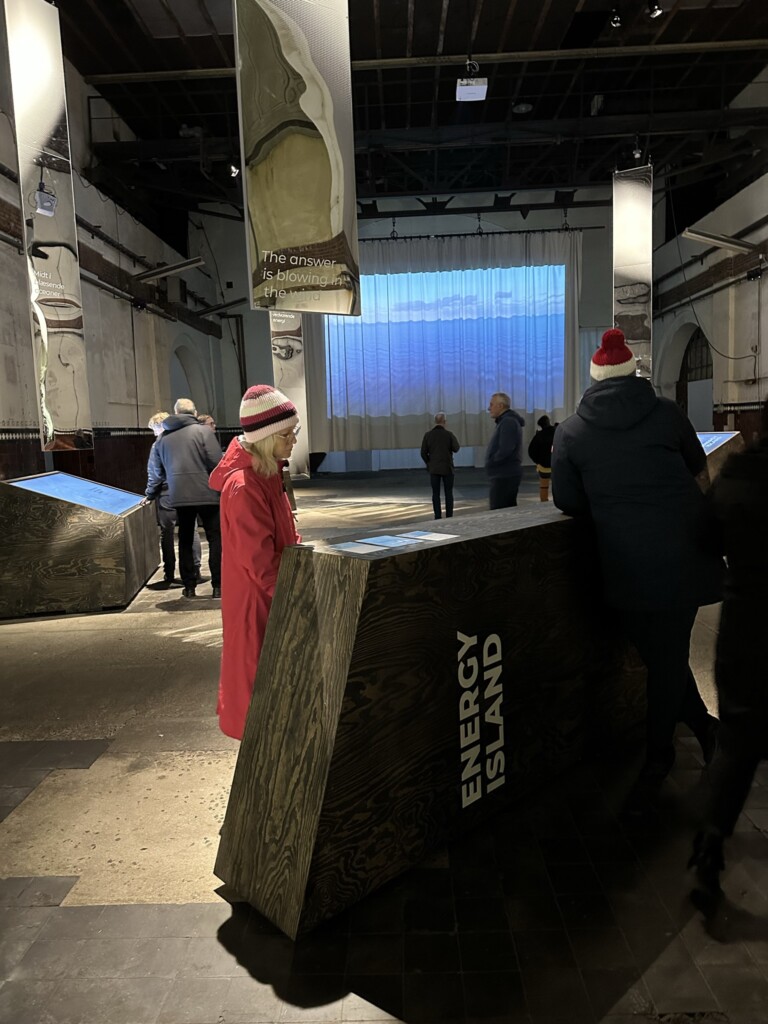
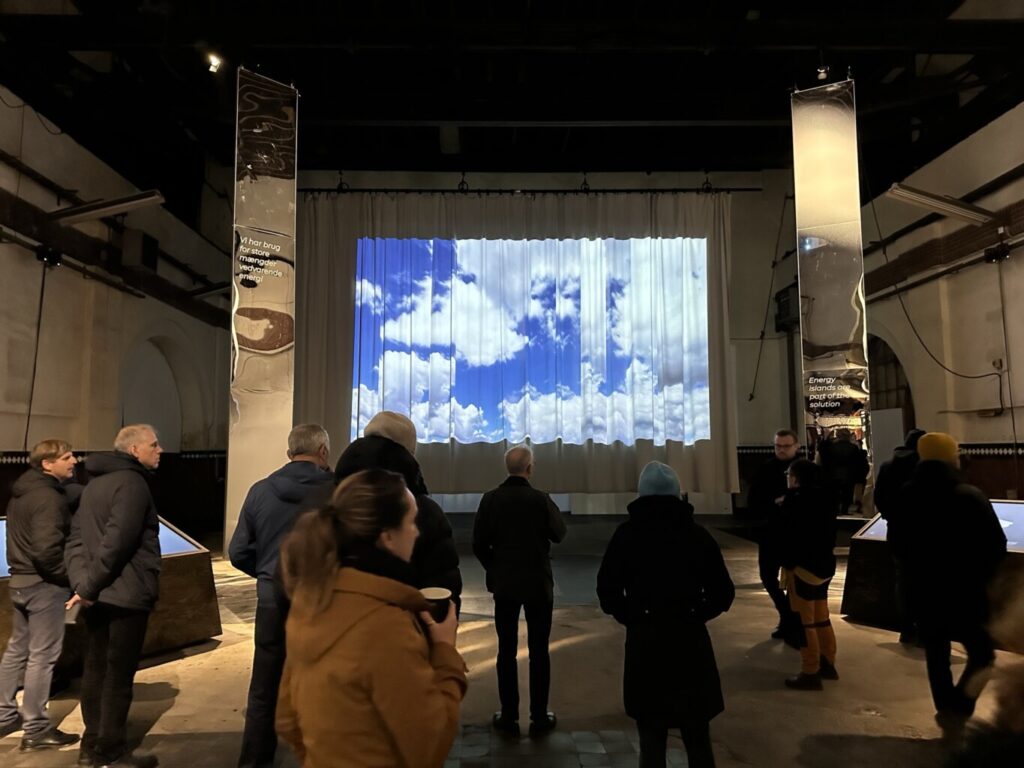
8th of November
The second day was open to external participants in connection with the Dialogue Forum "Potentials and Challenges of Water Reuse in the Baltic Sea Region." All guests as well as project partners were welcomed by the host from Bornholm's Energy and Utility Company and the Chair of the ERB Water Core Group.
During the Forum, invited guests imparted their knowledge on the topics of water treatment, where, among others, they spoke:
- Claus M.Andersen of Bornholms Energi and Forysning, who provide water, heating and produce energy. Between 2030 and 2032, they plan to erect 3 wind farms, from which they will send the energy they produce to Germany and Denmark. The important point is that treating wastewater is cheaper than treating seawater, which will be used, for example, in manufacturing to cool machinery or to wash it.
- Erik Kjellstrom discussed the topic of Climate projections for Baltic Sea Region, in which he talked about climate change in terms of water shortages and increased temperatures, which is increasingly affecting droughts but also periodic heavy downpours
- Marie Raffin spoke about Water Reuse Europe, her organization and how they recycle water for example for industrial purposes but also for residents. The problem is common laws or regulations and the lack of acceptance by authorities as well as residents to use treated water.
- Manuel Boluda Fernandez - Coexistence with water scarcity in Murcia Region. In Spain, April through October have lower rainfall values. The most difficult situation is in July and August when there is the greatest consumption of water by residents. They have a problem convincing people that treated water is as good as water from underground sources and can be used, because they have big problems with these water sources, which are decreasing every day. We should focus on creating appropriate policies and talking to residents to make them aware.
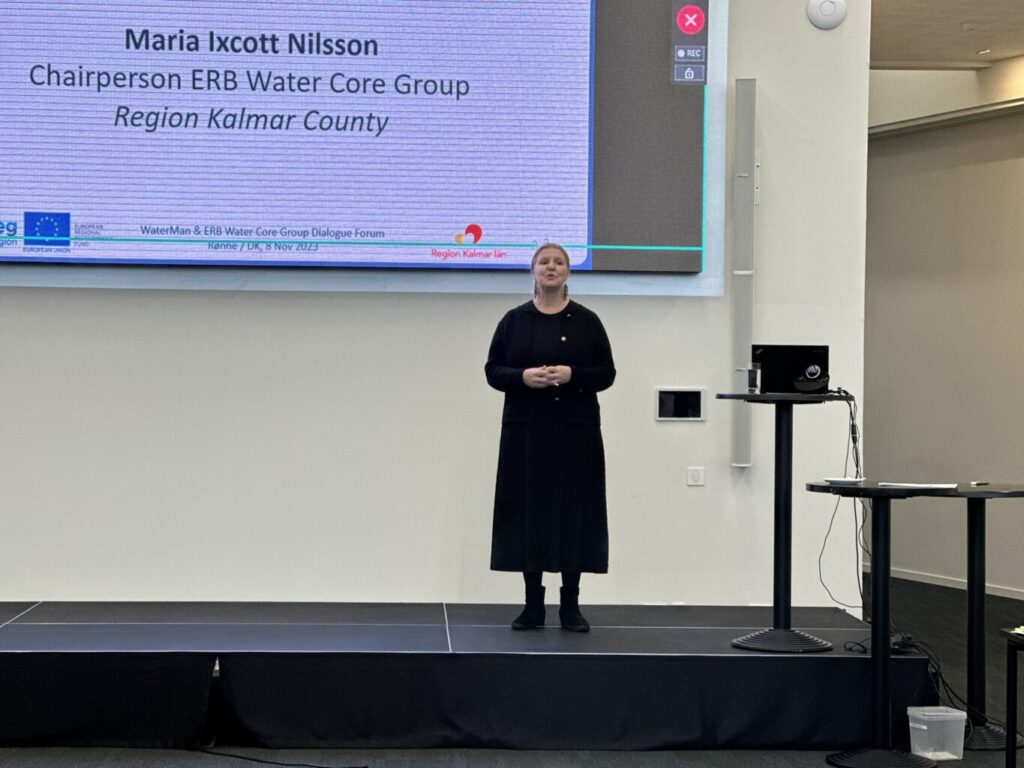
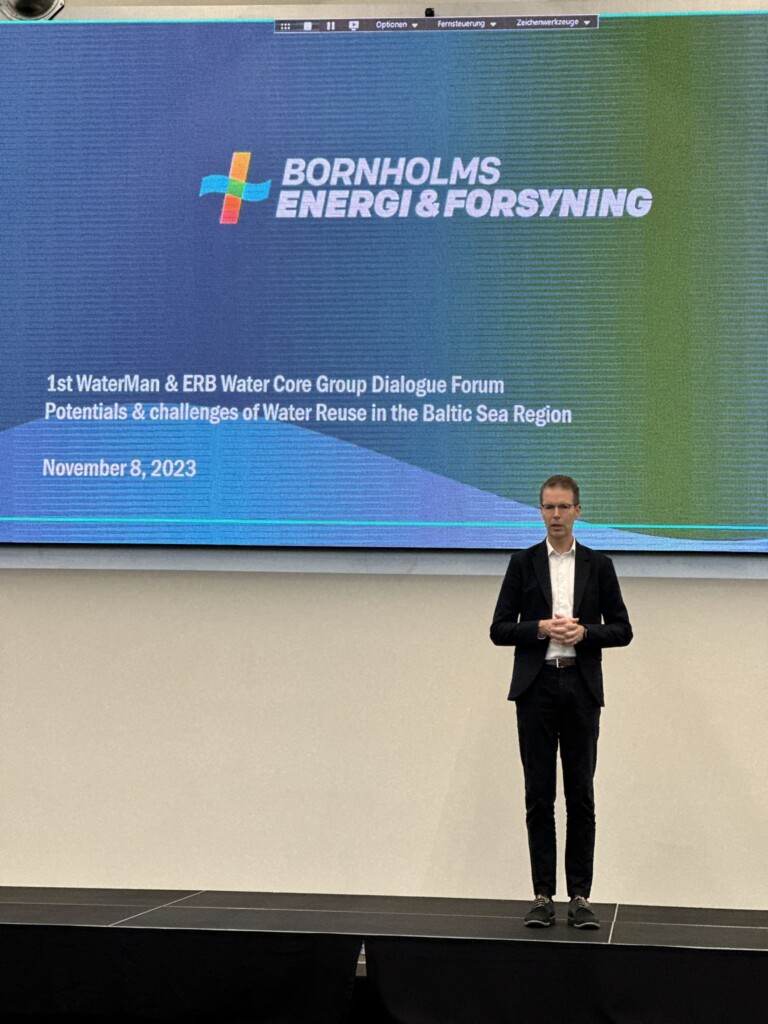
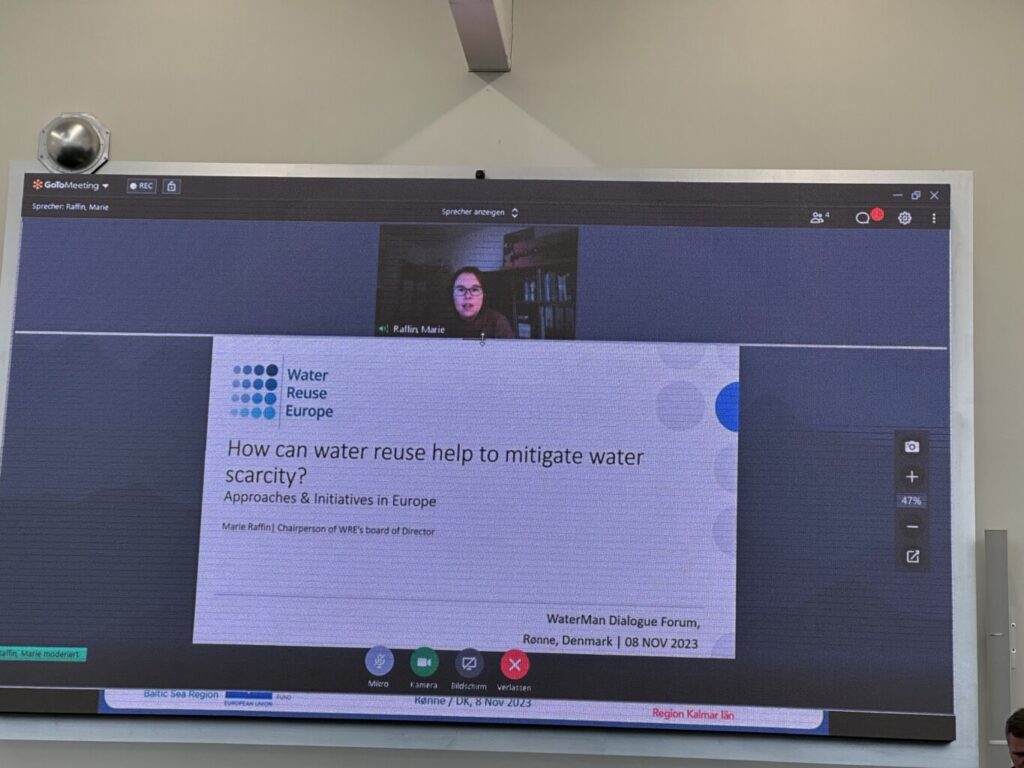
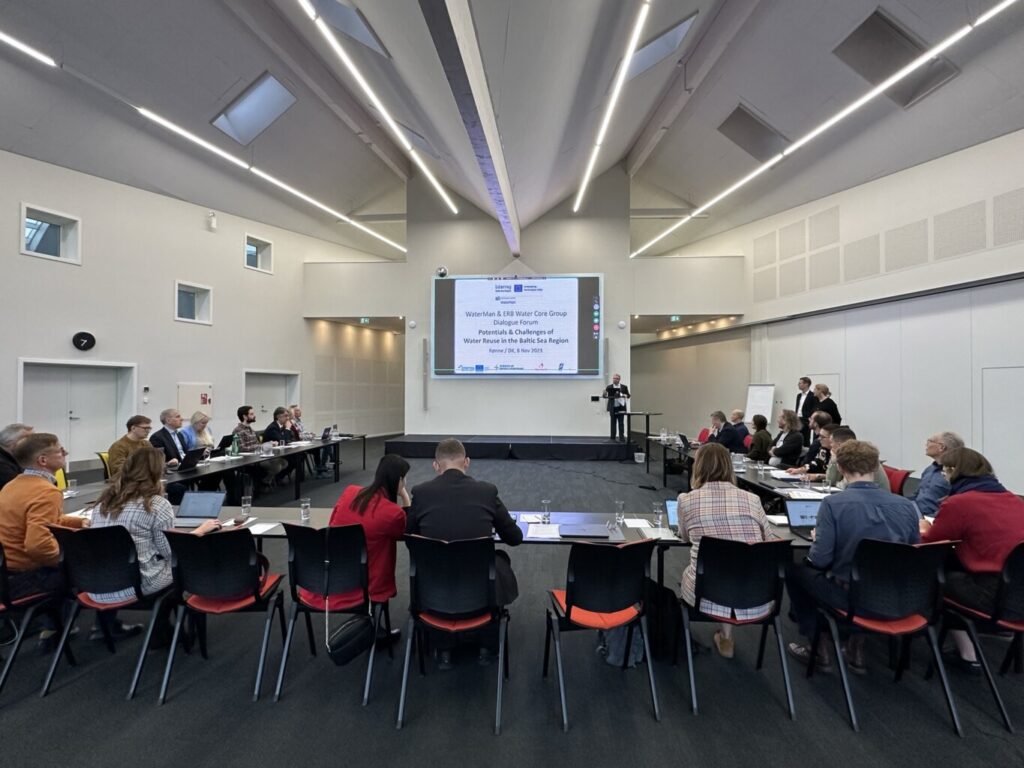
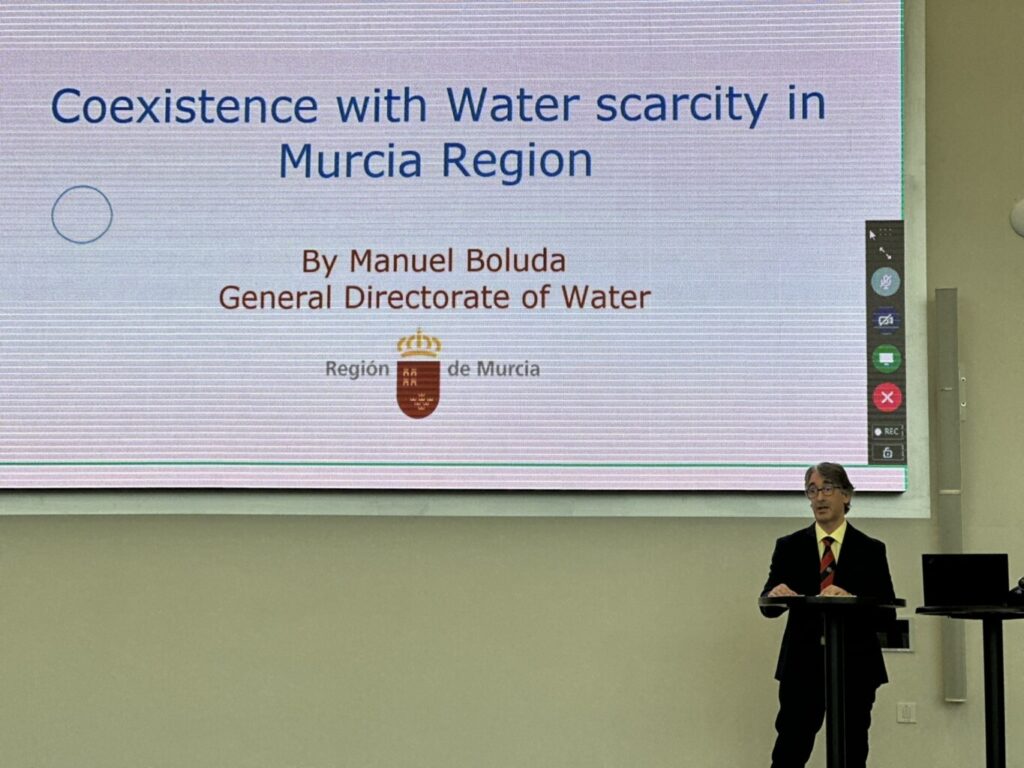
Also invited were people representing other projects in the field of water
- Klara Ramm - ReNutriWater
- Giacomo Messsina - Nursecoast-II
- Manuel Boluda Fernandez - Aquares
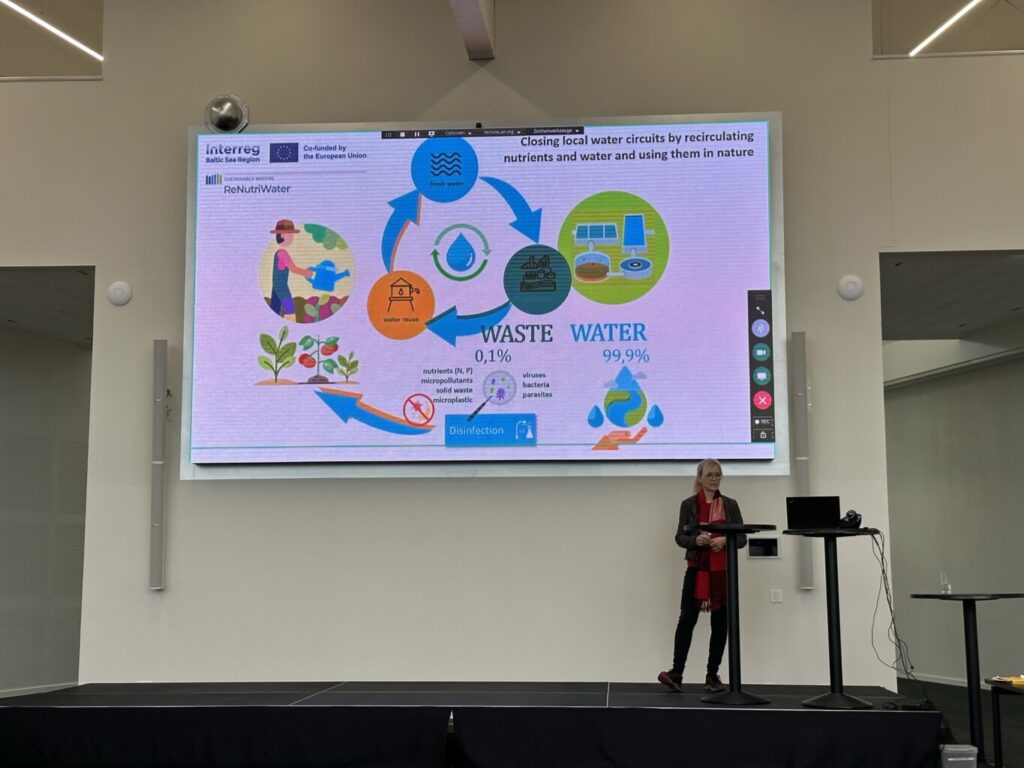
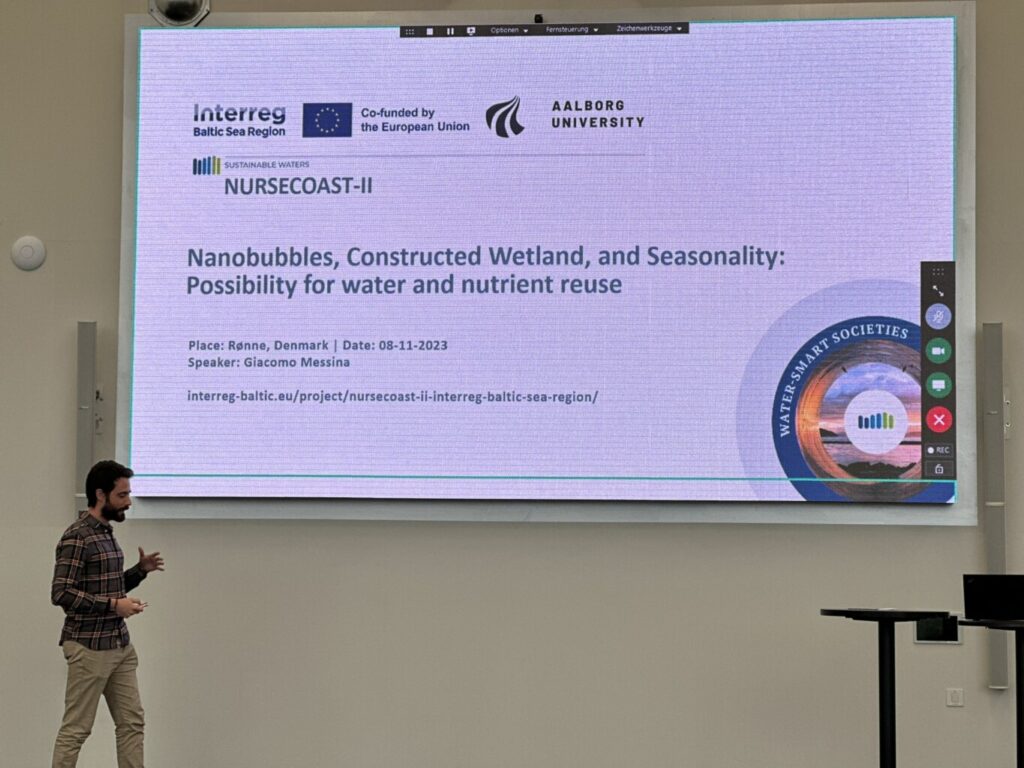
At the end of the day, a panel was held to dialogue and discuss the challenges of treated water. The conclusions are unfavorable but by working together there is a chance for change.
Usually at the ministerial level, there is some vision related to purified water but no specific strategies for its management. Joint planning and carrying out activities will positively contribute to the preservation of water resources for as long as possible, through their purification and reuse. Cities should already be adapting to conserve water and use purified water, e.g. for flushing toilets, and irrigation of urban green spaces.

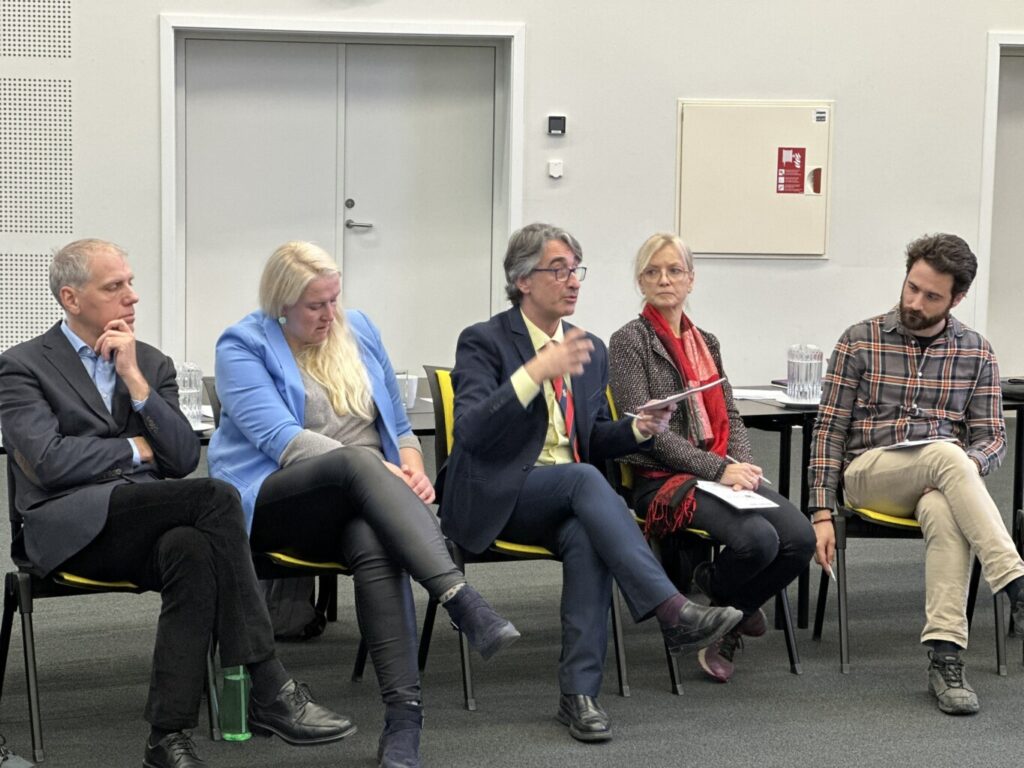
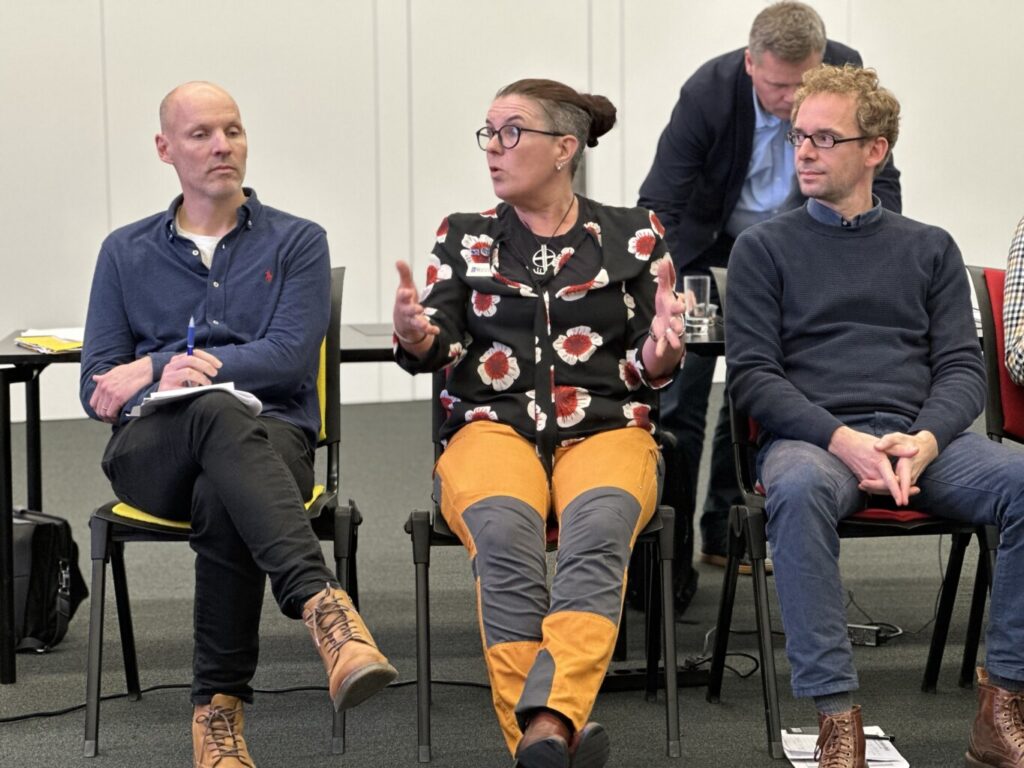
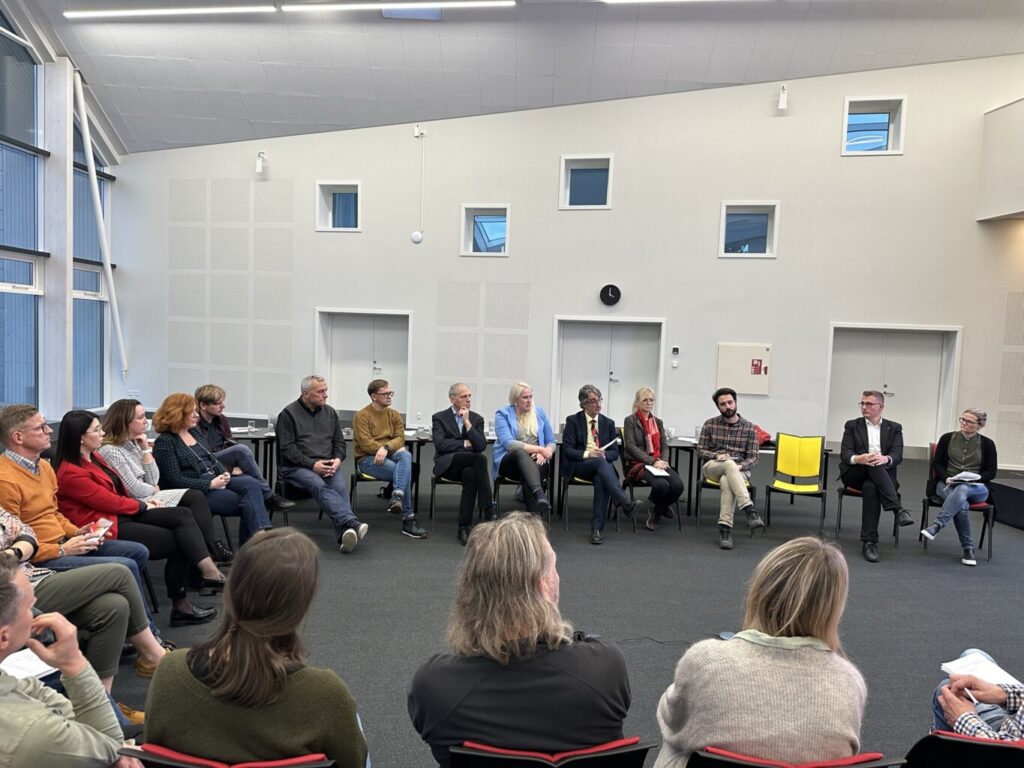
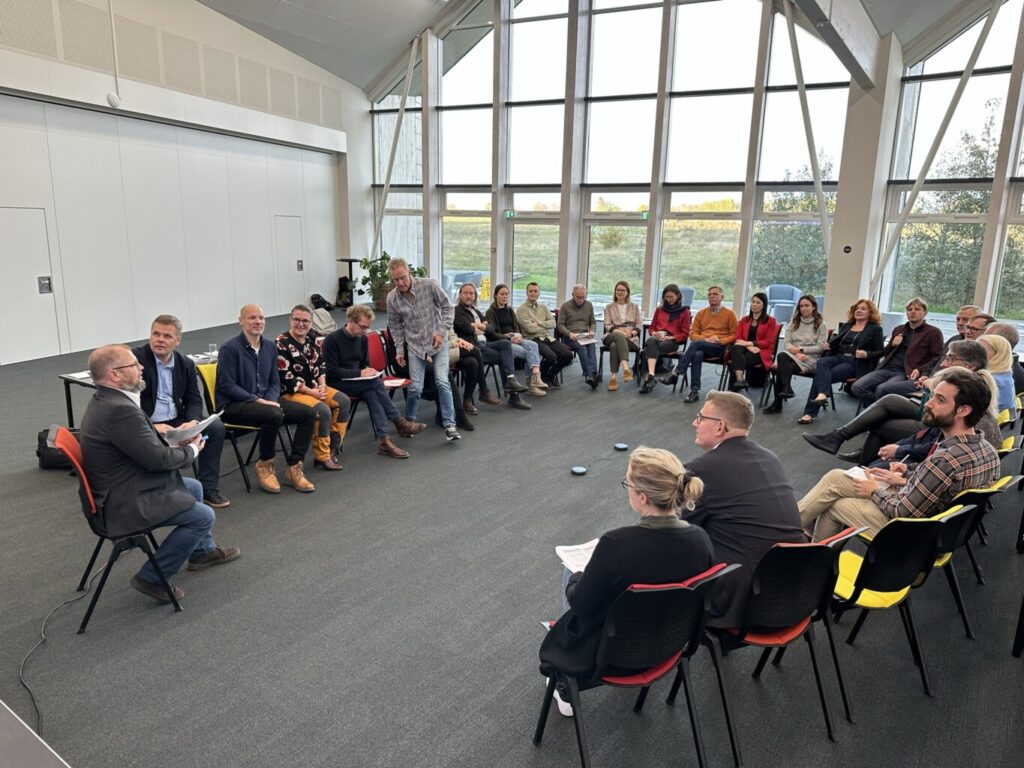
9th of November
The last day focused on local and regional model strategies for water reclamation. Each of the partners with pilot activities is preparing such a strategy, which will then be presented to residents and city officials.
Each partner has different stories and water issues they face on a daily basis.
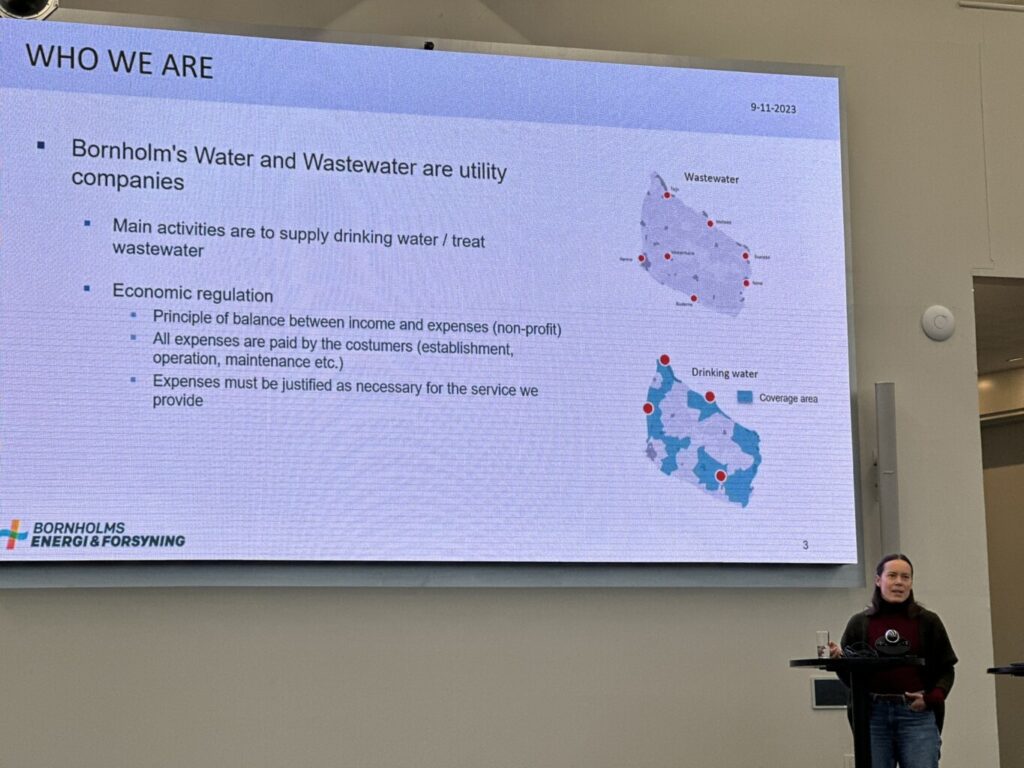
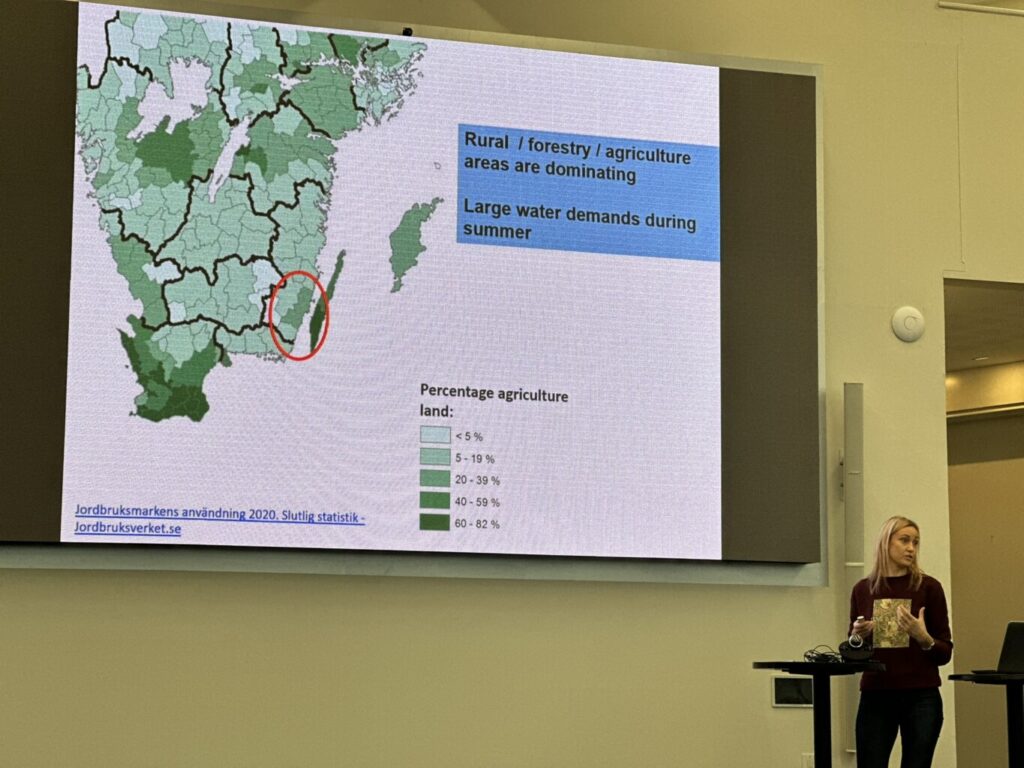
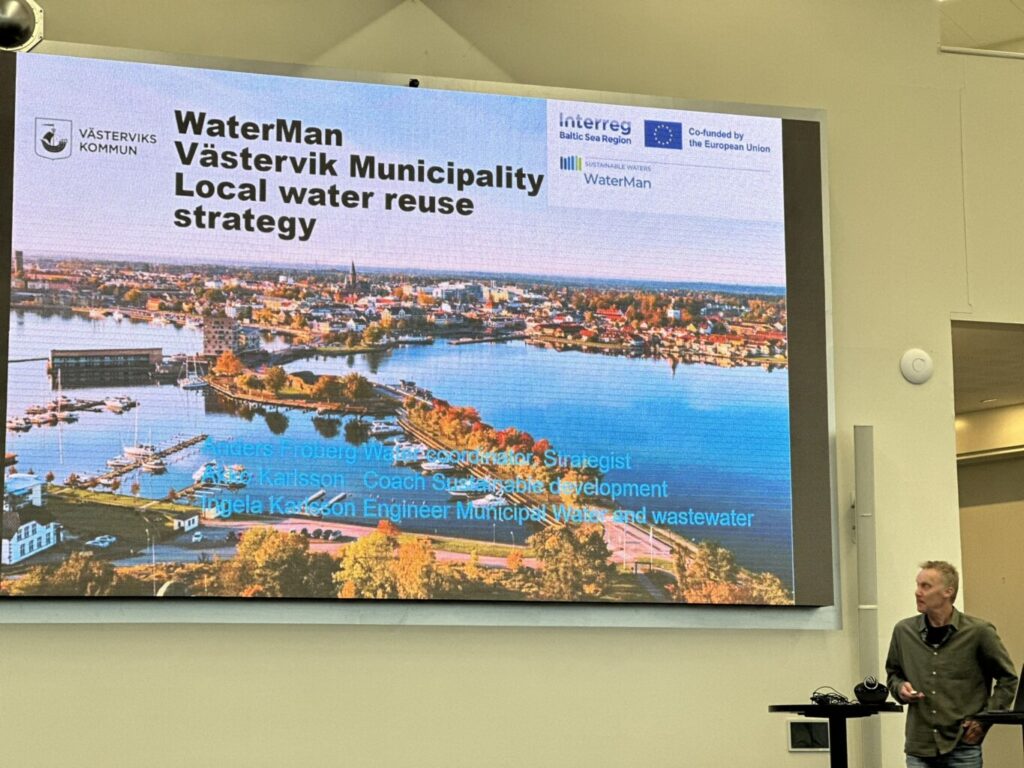

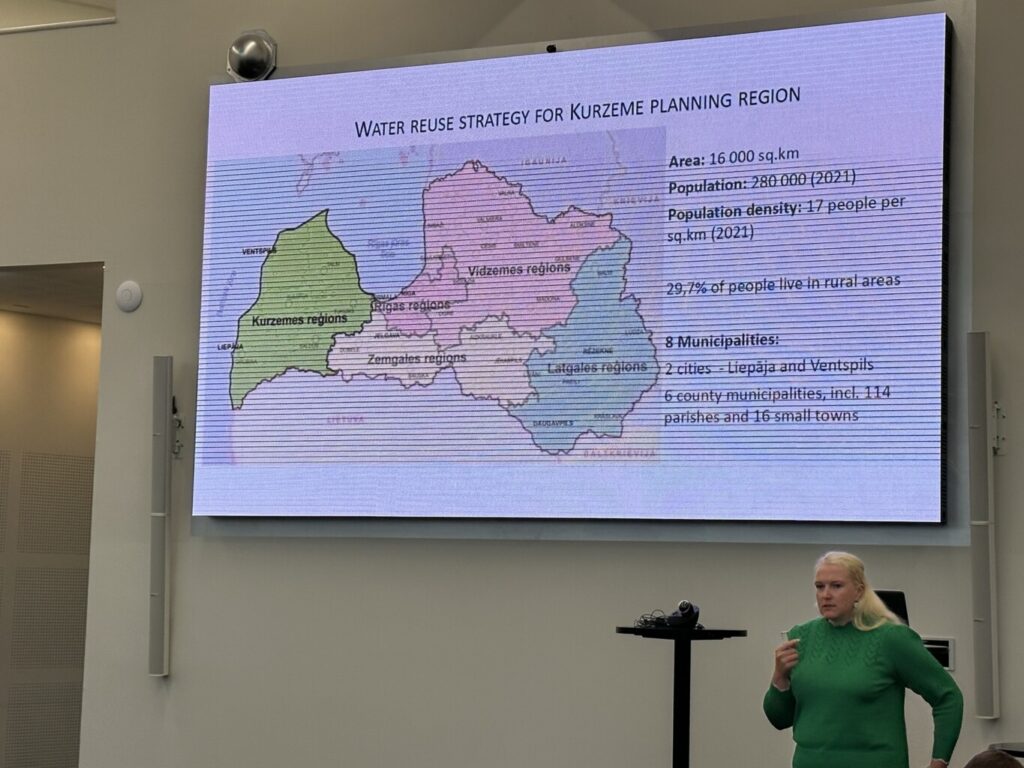
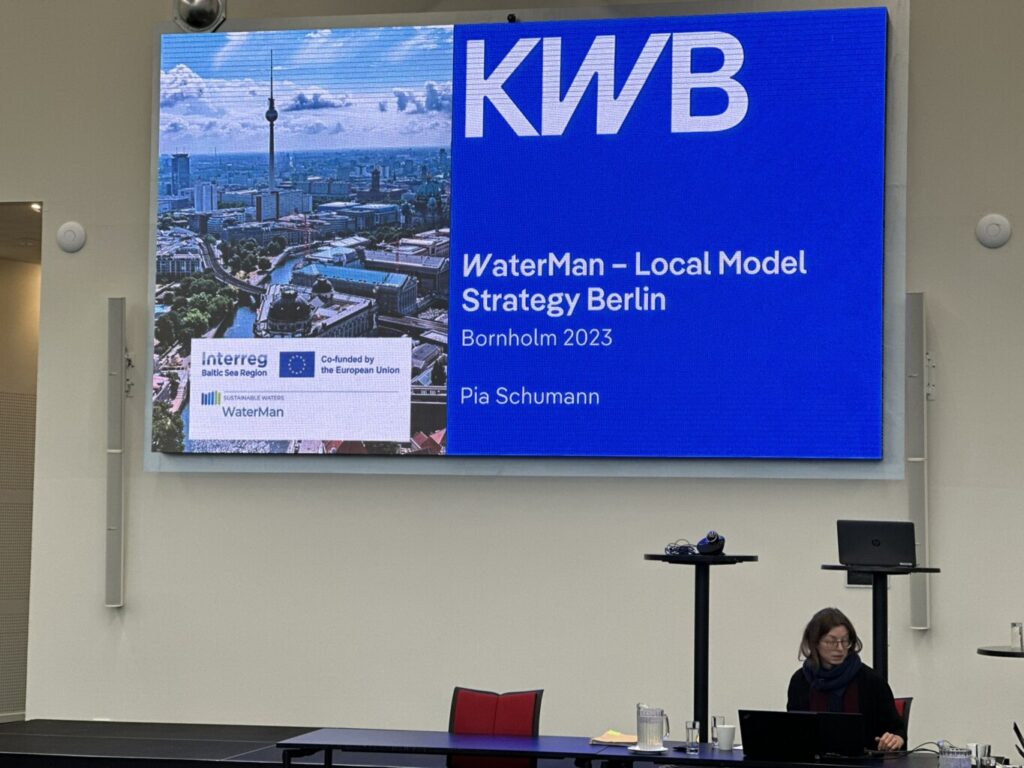
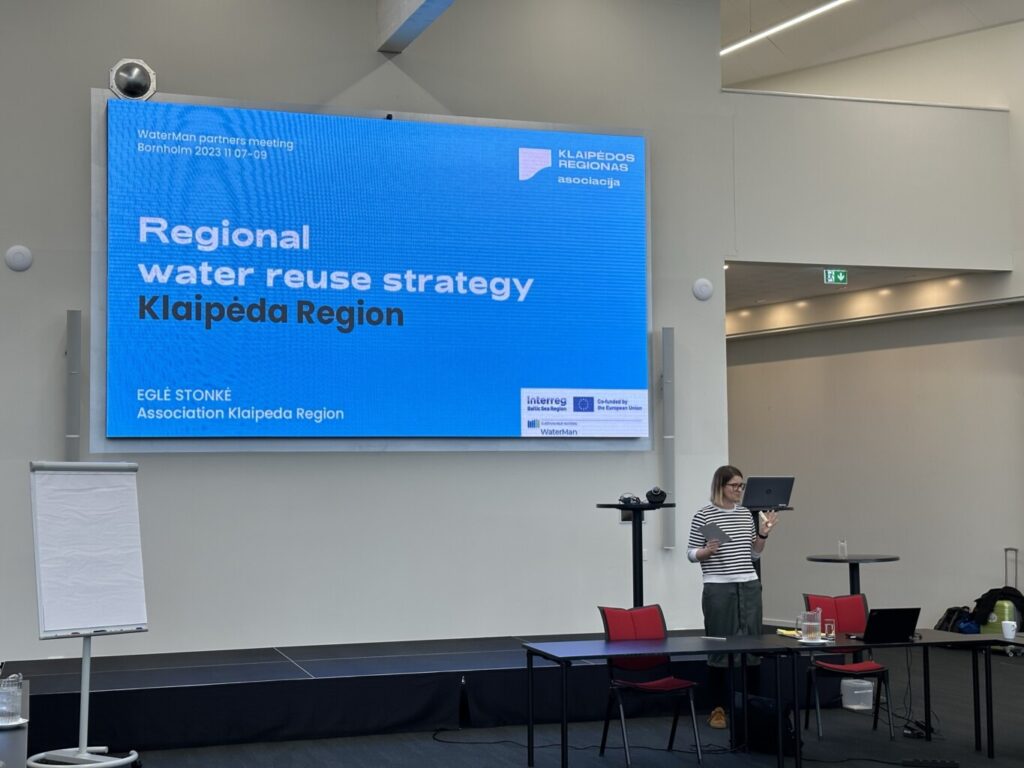
The final item on the agenda was the dissemination of information and raising awareness among politicians and residents on the topic of water reuse. The division of responsibilities was made and it was mentioned what are the planned next activities related to the joint promotion of the project.
The next physical meeting of the partners is planned for March 12-14, 2024 in Braniewo. The formula of the event will be duplicated with the current meeting, where experts, specialists, politicians and residents will be invited in addition to the project partners.
